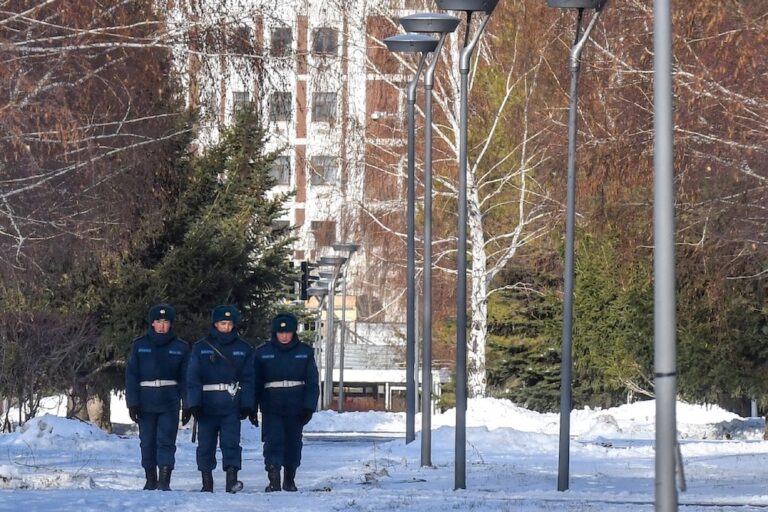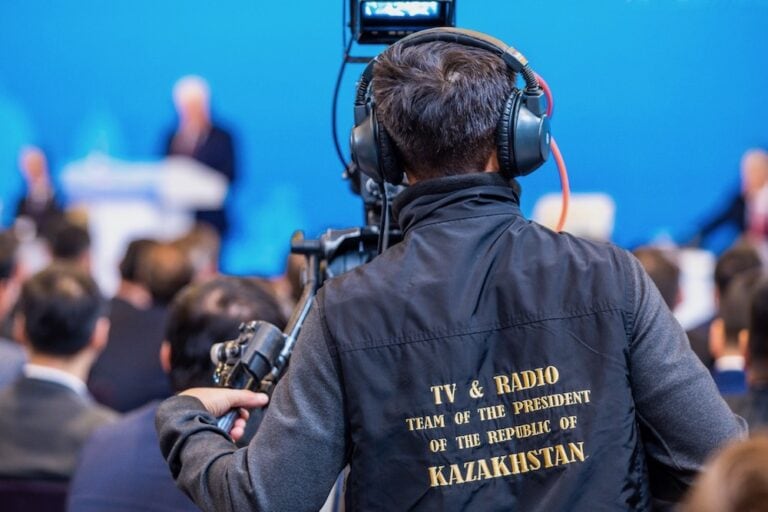Adil Soz believes recent Criminal Code amendments serve to diminish some penalties but do not sufficiently address the issue of criminalisation of defamation.
(Adil Soz/IFEX) – A new law “On Introducing Amendments to Some Laws of Kazakhstan for the Further Humanization of Criminal Legislation and the Strengthening of Legal Safeguards in the Criminal Process” has been introduced. The amendments diminish punishments for crimes relating to defamation. The law will take effect on 4 February 2011.
The Criminal Code of Kazakhstan includes several provisions concerning libel and insult. The general norms on libel and insult are Articles 129 and 130. These provide for fines, prohibition to engage in public work, correctional labour and imprisonment for the crimes of libel and insult. In separate provisions, the Criminal Code contains penalties for situations of libel and insult against public officials. Articles 318, 319 and 320 provide special protection for the dignity and honour of the president, MPs and state officials by stipulating higher penalties relative to those outlined for the commission of libel and insult offences against ordinary citizens. Article 343 covers the libelling of a judge, prosecutor, investigator, interrogator, court marshal or court executioner, and provides for imprisonment of up to four years.
Kazakhstan’s criminal defamation legislation continues to stifle criticism. Adil Soz is of the opinion that the new law does not solve the problem of complete decriminalization of defamation since only punishments for defamation are lessened. The amendments stipulate that crimes which do not pose a great danger to society will first be subject to consideration under civil law. Then, if a person commits the same offence within a year, the case will become a criminal matter.
In particular, Article 129 (part 2) on “defamation” was amended to stipulate that if an individual makes a defamatory statement in a public speech or in the media, the case will fall under civil procedure and the person may only pay a fine. Detentions of up to six months, as defined in the earlier version of the law, were excluded from the list of punishments. However, Article 129 (part 3), which stipulates punishment for defamation connected to allegations of a person’s involvement in serious crimes of corruption was not changed. This offence can still be punished with restraints on freedom or up to three years’ imprisonment.
Adil Soz has on numerous occasions issued statements expressing its concern over the situation regarding criminal prosecution of journalists for defamation in Kazakhstan. The most recent statement was issued in September 2010.
Adil Soz and other Kazakh media organizations are calling for the complete decriminalization of defamation and are preparing their own draft of amendments with a view to achieving that goal. The draft will be sent to the president, the Office of the General Prosecutor and other officials.


